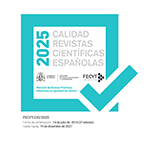The Double-Edged Sword: AI Integration in English Language Education from the Perspectives of Iranian EFL Instructors
Abstract
The integration of artificial intelligence (AI) in English language education has generated significant interest and anticipation due to its potential to transform teaching methodologies and enhance learning outcomes. With this in mind, the present study explored the perspectives of 452 Iranian EFL instructors on AI integration in English language education, focusing on efficiency, social and emotional development, engagement, feedback, critical thinking, and the role of teachers. The participants’ thoughts, opinions, and concerns regarding advantages, disadvantages and challenges were gathered through an online questionnaire that included both closed and open-ended questions. This was followed by semi-structured interview sessions with a cohort of EFL instructors, facilitating the collection of both qualitative and quantitative data. The results revealed predominantly positive perceptions regarding AI technology such as ChatGPT in English language education. However, concerns regarding AI tools’ capabilities and limitations were expressed. EFL instructors held neutral attitudes towards the impact of AI tools such as ChatGPT on students’ social-emotional development and high order skills. The results further highlighted a spectrum of opinions on the merits (e.g., fostering collaboration and community building), drawbacks (e.g., insufficient consideration of sociolinguistic nuances and Americentric data), and potential challenges (e.g., apprehension of change) associated with AI integration. The study concluded by discussing the implications of these findings for English language education in Iran and offering recommendations for the effective and ethical integration of AI tools in EFL classrooms.
Downloads
Article download
License
In order to support the global exchange of knowledge, the journal Complutense Journal of English Studies is allowing unrestricted access to its content as from its publication in this electronic edition, and as such it is an open-access journal. The originals published in this journal are the property of the Complutense University of Madrid and any reproduction thereof in full or in part must cite the source. All content is distributed under a Creative Commons Attribution 4.0 use and distribution licence (CC BY 4.0). This circumstance must be expressly stated in these terms where necessary. You can view the summary and the complete legal text of the licence.









